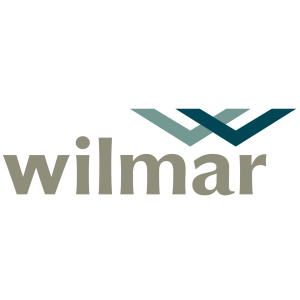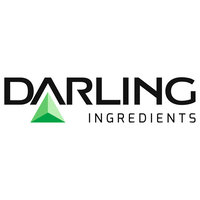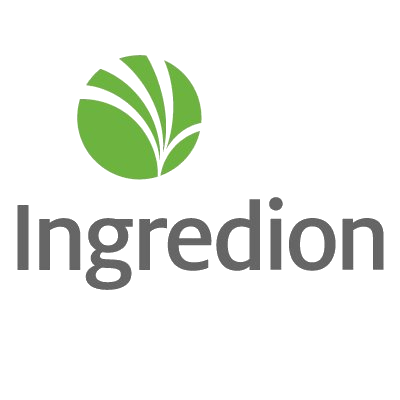Sime Darby Plantation Bhd
OTC:SDPNF
Profitability Summary
Sime Darby Plantation Bhd's profitability score is hidden . We take all the information about a company's profitability (such as its margins, capital efficiency, free cash flow generating ability, and more) and consolidate it into one single number - the profitability score. The higher the profitability score, the more profitable the company is.
Profitability Score
We take all the information about a company's profitability (such as its margins, capital efficiency, free cash flow generating ability, and more) and consolidate it into one single number - the profitability score. The higher the profitability score, the more profitable the company is.
We take all the information about a company's profitability (such as its margins, capital efficiency, free cash flow generating ability, and more) and consolidate it into one single number - the profitability score. The higher the profitability score, the more profitable the company is.
Profitability Score
Margins
Earnings Waterfall
Sime Darby Plantation Bhd
Margins Comparison
Sime Darby Plantation Bhd Competitors
| Country | Company | Market Cap |
Gross Margin |
Operating Margin |
Net Margin |
||
|---|---|---|---|---|---|---|---|
| MY |
S
|
Sime Darby Plantation Bhd
KLSE:SIMEPLT
|
40.9B MYR |
Loading...
|
Loading...
|
Loading...
|
|
| US |
A
|
Archer-Daniels-Midland Co
XETRA:ADM
|
27.6B EUR |
Loading...
|
Loading...
|
Loading...
|
|
| US |

|
Bunge Ltd
NYSE:BG
|
23.5B USD |
Loading...
|
Loading...
|
Loading...
|
|
| SG |

|
Wilmar International Ltd
SGX:F34
|
22.3B SGD |
Loading...
|
Loading...
|
Loading...
|
|
| CN |

|
Tongwei Co Ltd
SSE:600438
|
81.1B CNY |
Loading...
|
Loading...
|
Loading...
|
|
| US |

|
Darling Ingredients Inc
NYSE:DAR
|
8.2B USD |
Loading...
|
Loading...
|
Loading...
|
|
| US |

|
Ingredion Inc
NYSE:INGR
|
7.3B USD |
Loading...
|
Loading...
|
Loading...
|
|
| MY |

|
IOI Corporation Bhd
KLSE:IOICORP
|
25.4B MYR |
Loading...
|
Loading...
|
Loading...
|
|
| MY |
K
|
Kuala Lumpur Kepong Bhd
KLSE:KLK
|
22.3B MYR |
Loading...
|
Loading...
|
Loading...
|
|
| CN |

|
New Hope Liuhe Co Ltd
SZSE:000876
|
38.6B CNY |
Loading...
|
Loading...
|
Loading...
|
|
| MY |
U
|
United Plantations Bhd
KLSE:UTDPLT
|
18.9B MYR |
Loading...
|
Loading...
|
Loading...
|
Return on Capital
Return on Capital Comparison
Sime Darby Plantation Bhd Competitors
| Country | Company | Market Cap | ROE | ROA | ROCE | ROIC | ||
|---|---|---|---|---|---|---|---|---|
| MY |
S
|
Sime Darby Plantation Bhd
KLSE:SIMEPLT
|
40.9B MYR |
Loading...
|
Loading...
|
Loading...
|
Loading...
|
|
| US |
A
|
Archer-Daniels-Midland Co
XETRA:ADM
|
27.6B EUR |
Loading...
|
Loading...
|
Loading...
|
Loading...
|
|
| US |

|
Bunge Ltd
NYSE:BG
|
23.5B USD |
Loading...
|
Loading...
|
Loading...
|
Loading...
|
|
| SG |

|
Wilmar International Ltd
SGX:F34
|
22.3B SGD |
Loading...
|
Loading...
|
Loading...
|
Loading...
|
|
| CN |

|
Tongwei Co Ltd
SSE:600438
|
81.1B CNY |
Loading...
|
Loading...
|
Loading...
|
Loading...
|
|
| US |

|
Darling Ingredients Inc
NYSE:DAR
|
8.2B USD |
Loading...
|
Loading...
|
Loading...
|
Loading...
|
|
| US |

|
Ingredion Inc
NYSE:INGR
|
7.3B USD |
Loading...
|
Loading...
|
Loading...
|
Loading...
|
|
| MY |

|
IOI Corporation Bhd
KLSE:IOICORP
|
25.4B MYR |
Loading...
|
Loading...
|
Loading...
|
Loading...
|
|
| MY |
K
|
Kuala Lumpur Kepong Bhd
KLSE:KLK
|
22.3B MYR |
Loading...
|
Loading...
|
Loading...
|
Loading...
|
|
| CN |

|
New Hope Liuhe Co Ltd
SZSE:000876
|
38.6B CNY |
Loading...
|
Loading...
|
Loading...
|
Loading...
|
|
| MY |
U
|
United Plantations Bhd
KLSE:UTDPLT
|
18.9B MYR |
Loading...
|
Loading...
|
Loading...
|
Loading...
|

